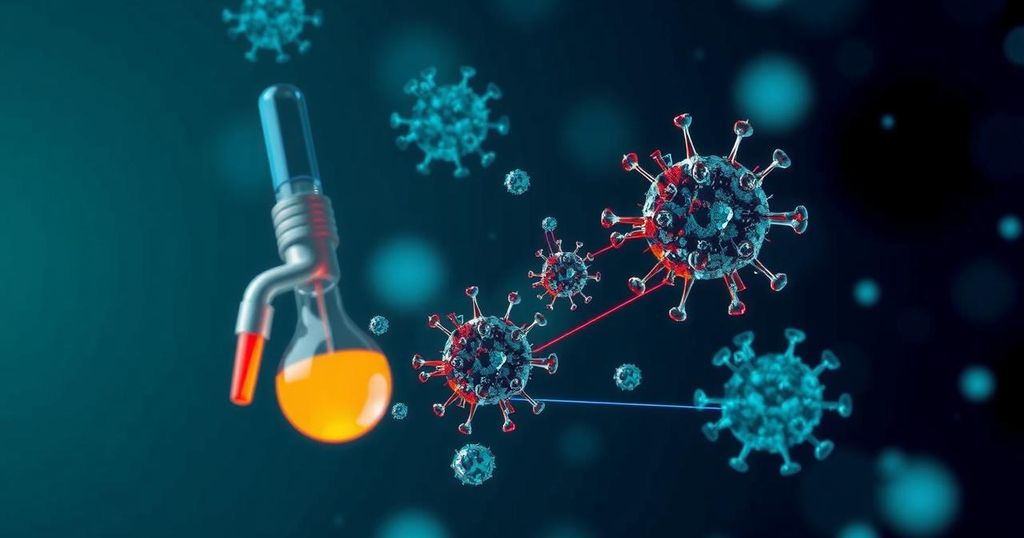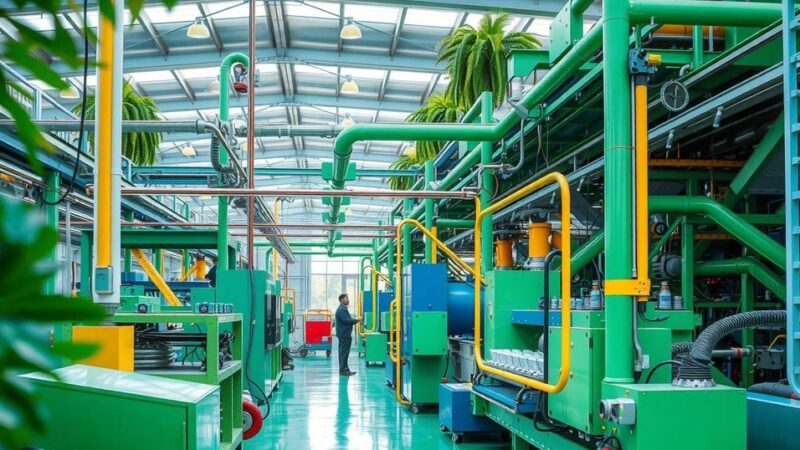Rajeev Nair from Merck highlights a surge in biotechnology and diagnostics startups in India, reflecting the industry’s focus on innovation post-COVID-19. Merck aims to leverage its expertise to support the transformation of the healthcare sector in India through collaborations, sustainability, and significant product innovations like SYNTHIA™ and LANEXO™, while addressing the need for secure supply chains and regulatory adaptations.
The biotechnology and diagnostics landscape in India has witnessed significant growth, according to Rajeev Nair, Global Head of Chemistry, Life Science Business at Merck. The COVID-19 pandemic fundamentally altered the perception of diseases and treatments, leading to greater focus on improving quality of life through innovation. With a growing aging population and increased health awareness, Merck India aims to leverage its extensive expertise in chemistry, biology, and biopharma to support India’s transformative journey in the life sciences sector. The COVID-19 pandemic revealed critical gaps in healthcare systems and emphasized the importance of robust primary healthcare infrastructure. As a result, pharmaceutical companies have increasingly focused on research and development, employing advanced technologies such as machine learning and artificial intelligence in drug discovery. In this rapidly evolving landscape, Merck is prioritizing partnerships and collaborations across startups, academic institutions, and pharmaceutical companies to strengthen the Indian healthcare ecosystem. Merck offers a comprehensive portfolio of over 300,000 products designed for scientific discovery and biomanufacturing, playing a crucial role in advancing drug development. Notable innovations include the computer-aided retrosynthesis design platform SYNTHIA™, which significantly expedites the process of finding viable synthetic routes. Furthermore, the introduction of LANEXO™, an inventory management tool, aims to enhance operational efficiency in laboratories. These advancements collectively contribute to the Indian healthcare sector by fostering innovation and addressing the demand for reliable pharmaceuticals. As the Indian pharma and biopharma sectors evolve, the significance of sustainability cannot be overlooked. New regulations globally are pushing for greener alternatives in product manufacturing, which presents a competitive edge for Indian companies. Additionally, the pandemic has reshaped priorities within the biotech and life sciences industries, necessitating a strategic refocus on diverse research projects and the establishment of secure supply chains. With India’s potential as a hub for life sciences, driven by its vast talent pool of researchers, companies have substantial opportunities to thrive. Collaborative efforts between established companies and innovative startups are essential for sustaining growth and advancing the pharmaceutical landscape. Merck’s commitment to supporting skill development within India’s life sciences sector underscores its long-term investment in the country’s future. In summary, India’s biotechnology and diagnostics sectors are on an upward trajectory, characterized by innovation, collaboration, and a focus on sustainability. Through strategic partnerships and a commitment to research and development, companies like Merck are poised to significantly impact the Indian healthcare landscape, ultimately enhancing the quality of life for its population.
The rise of startups in the biotechnology and diagnostics sector is reshaping India’s healthcare landscape. With the COVID-19 pandemic illuminating vulnerabilities in existing healthcare systems, there has been a surge in innovations aimed at enhancing quality of life. The Life Science sector is increasingly prioritizing research and development, leveraging cutting-edge technologies and collaborations across industries to drive transformation. Merck’s role in this evolving ecosystem is noteworthy as it aims to merge global trends with local necessities, positioning itself as a pivotal player in advancing India’s healthcare capabilities.
In conclusion, the biotechnology and diagnostics sectors in India are experiencing remarkable growth, driven by a combination of innovation, collaboration, and a focus on sustainability. Companies like Merck that prioritize research and development, together with startups and academic institutions, stand to foster a robust healthcare ecosystem. As India continues to navigate its growth trajectory, the emphasis on digital transformation and greener alternatives will likely define the future of its life sciences sector, ultimately improving health outcomes for its citizens.
Original Source: www.financialexpress.com






